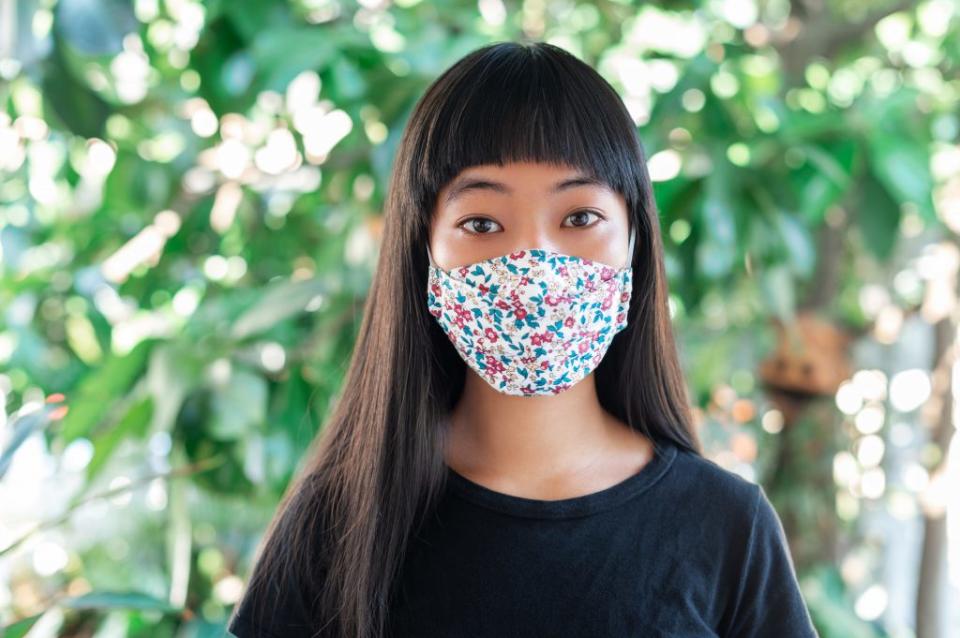Here’s how to properly clean fabric face masks, according to experts
Our team is dedicated to finding and telling you more about the products and deals we love. If you love them too and decide to purchase through the links below, we may receive a commission. Pricing and availability are subject to change.
If you’re like me, you probably have a multitude of questions on how to clean your fabric face masks. Since face masks are not going anywhere anytime soon, we may as well learn to properly clean them to ensure they’re as effective as possible.
To learn more about how to clean masks properly at home, we spoke to Diann Peart, Ph.D., founder and CEO of Truce, and Dr. Michelle Henry, a New York-based dermatologist. Read on for answers to some of your biggest questions.
How should I clean my fabric face mask?
Cloth masks are the most common type of face mask — and easiest to clean, according to Peart. “They should be washed in warm soapy water either by hand or in the washer, and then you can put the mask in the dryer on the hot setting,” she says.
Not only is cleaning your face mask essential to mitigating the spread of germs, but it can also help you avoid skin irritation and skin concerns like maskne.
“Washable masks and other cloth face coverings should be washed regularly (e.g., daily and whenever soiled) using water and a mild detergent like Tide Free & Gentle,” Dr. Henry adds. “A clean mask will help keep your skin clear.”
How often should I wash my face mask?
Unfortunately, now is not the time to adopt a lazy girl beauty routine. “Most experts recommend that your mask be washed and dried after each wearing,” Peart tells In The Know. “Be sure to wash your hands before and after handling your face mask in case any virus droplets should be present on the mask’s surface.”
If you need face masks in-between washes, you can always grab some disposable face masks, cloth face masks and even the fabric face masks our shopping editors wear daily.

Should I wash my face mask by hand or by machine?
Peart says that either hand washing or machine washing is sufficient. “According to the CDC, masks should be washed depending on the frequency of use, so if you use your mask daily for errands or work, wash the mask daily,” she says.
Personally, I like washing my face mask with a little brush, mostly to remove makeup and lipstick residue.
When should I throw my face mask away?
Just because you wash your masks consistently doesn’t mean there won’t come a point where it’s time to toss it. “When your mask is soiled or damaged, you’ll need to discard it,” Peart says, although she cautions against throwing it away in the trash.
“Don’t throw your soiled or damaged face mask in the garbage. It may contain dangerous germs,” she adds. “Wash the mask, dry it on the highest setting, fold it up and place it in a sealed plastic bag, then throw it in the garbage. Always remember to wash your hands before and after you’ve handled the face mask.”
What else can clean my face mask?
Surprisingly, UV rays really do have the capabilities of cleaning your face masks and other surfaces. “UV rays can disinfect your mask. There are special machines that can be used, but it is uncommon to have them in a home setting.”
Peart, however, recommends being extremely meticulous when using UV to clean your masks since it does have its limitations. “Since UV can only disinfect what it shines on, any shadows cast by a mask’s tiny folds might prevent those spots from being decontaminated,” she advises.
Additionally, you can use natural sources like sunlight if you have a bit more time on your hands. “If you have time, sunlight is great, but it takes a long time,” Peart says. “For the amount of time it would take, you’re better off putting a mask in a brown paper bag and hanging it off a well-aerated porch for seven days. The pathogen will be dead by then anyway.”
Can I bleach my face mask?
Although many of us may think that bleach is the best thing to killing germs, it poses major risks both as a physical and respiratory irritant. Essentially, don’t do it. “While bleach may be great for sanitizing hard surfaces or cleaning towels and bedding, bleach is not a recommended cleaning agent for face masks, even in a diluted solution,” Peart says. “Bleach is a respiratory irritant so avoid it for face masks.”
If you liked this story, read some more tips we share on dealing with face irritation due to wearing a mask.
More from In The Know:
Subscribe to our daily newsletter to stay In The Know
Tips on going to a dermatologist if you are Black
These black face masks are equal parts chic and comfortable
Amazon shoppers, myself included, love this $10 foot scraper
The post Here’s how to properly clean fabric face masks, according to experts appeared first on In The Know.

 Yahoo Sport
Yahoo Sport 





































